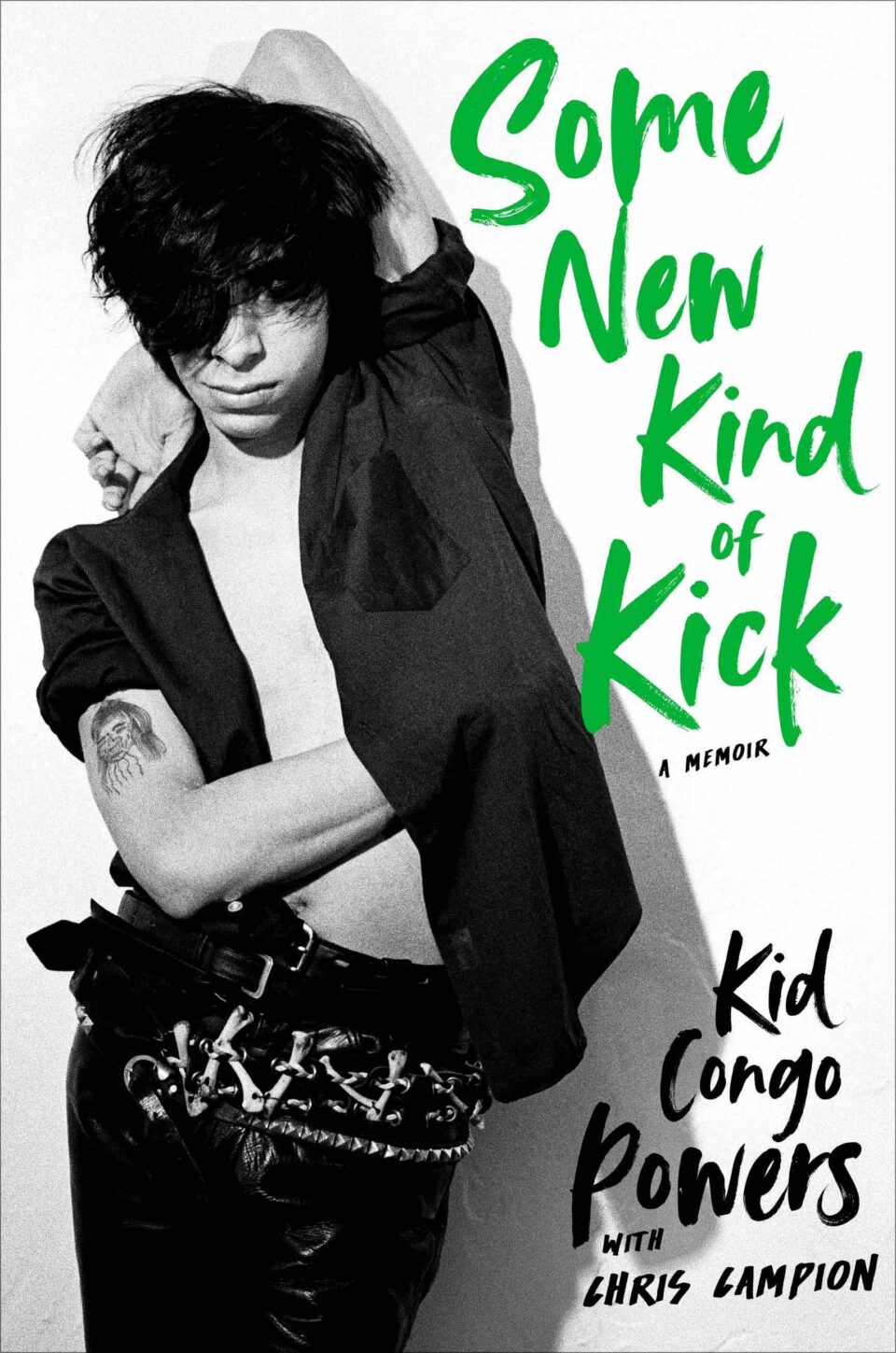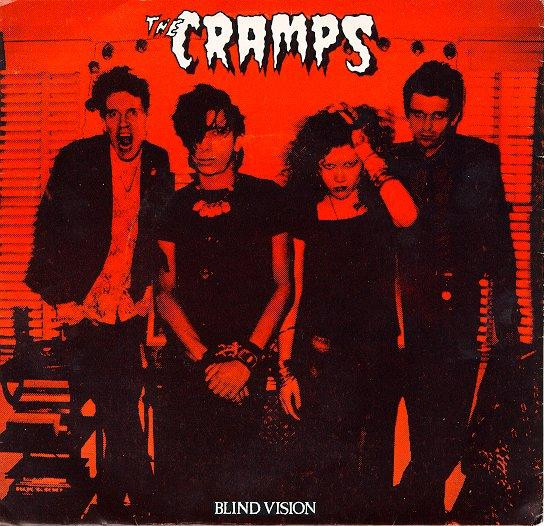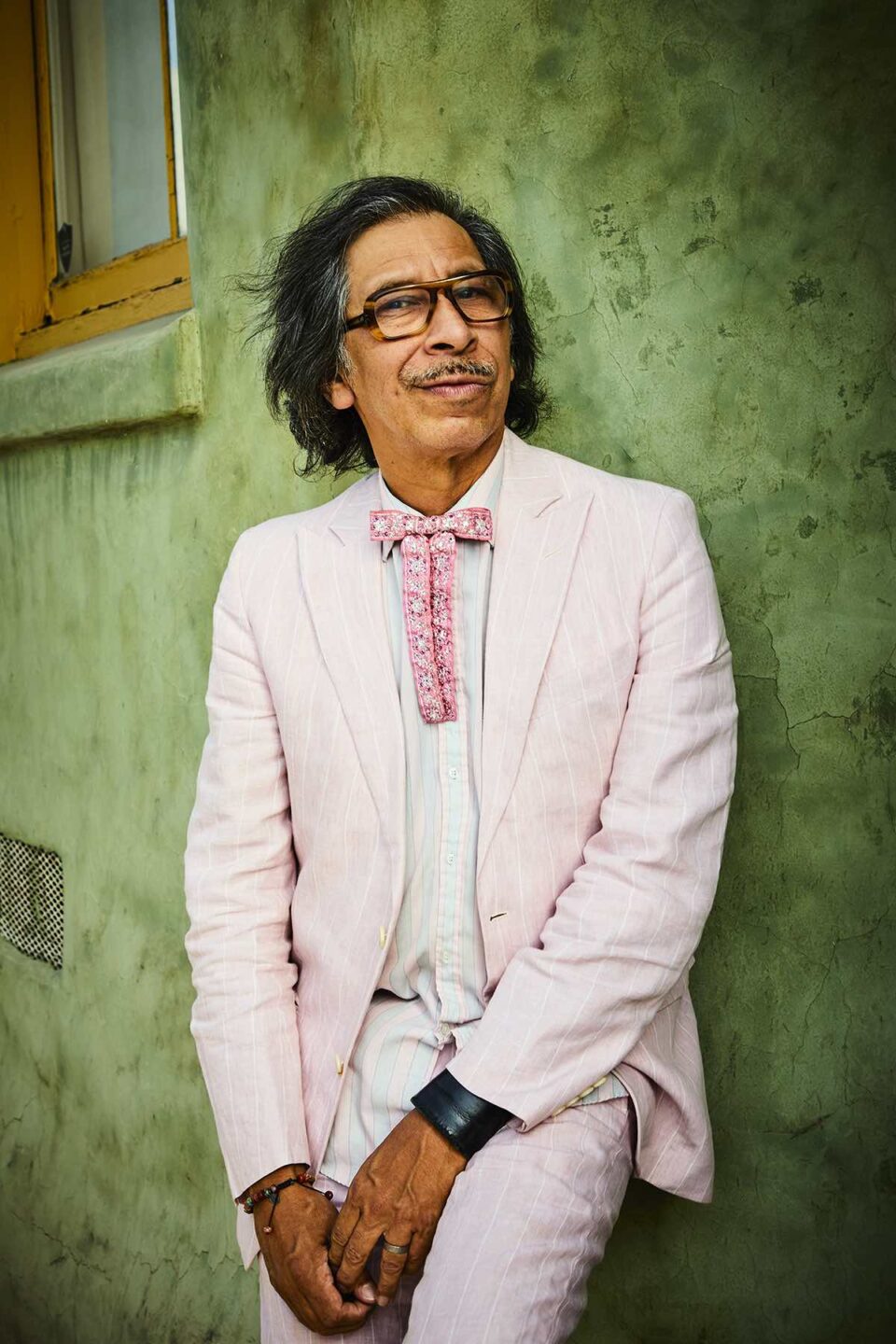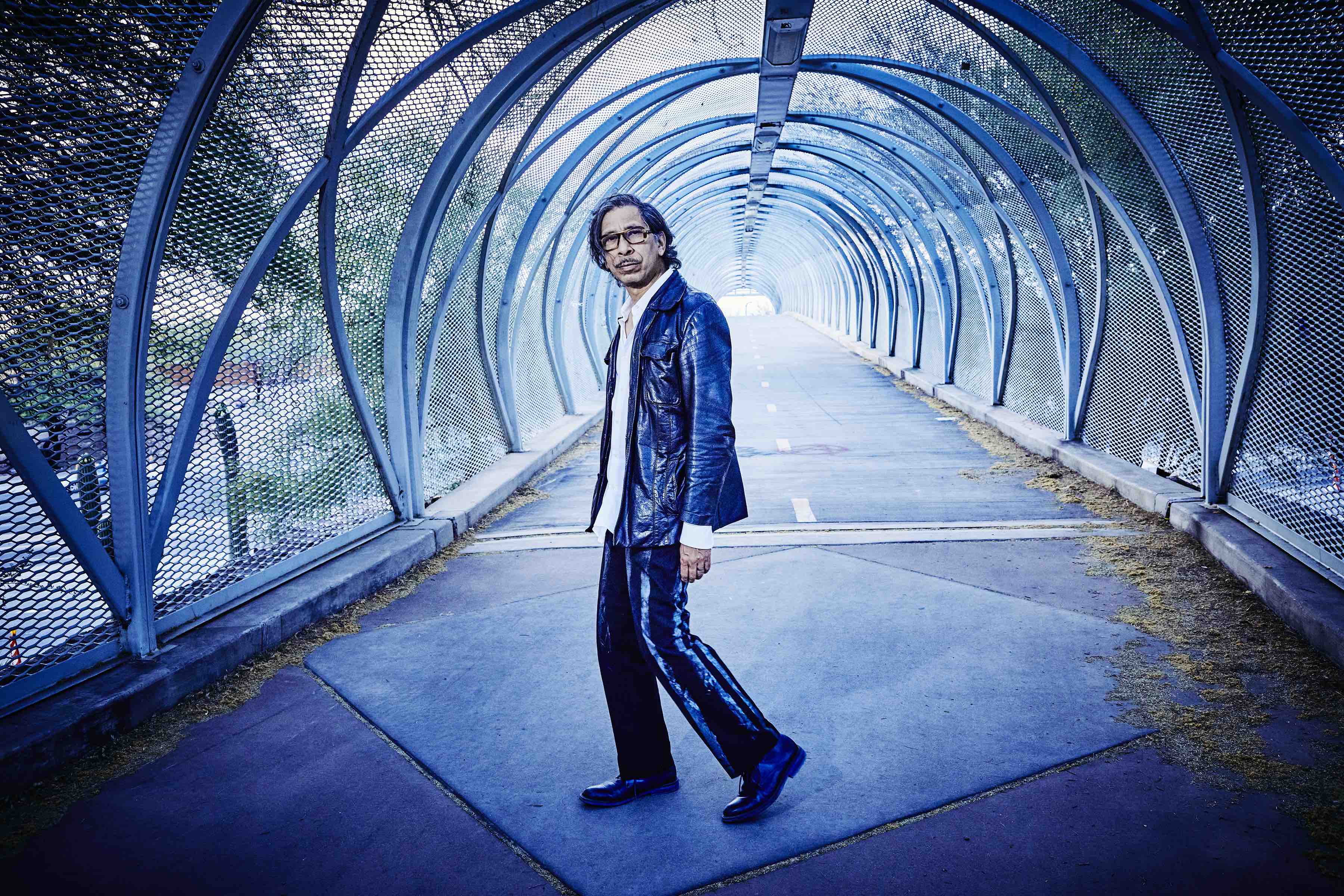Kid Congo Powers is beloved for his work as a vocalist and guitarist with bands such as The Pink Monkey Birds, The Near Death Experience, and Wolfmanhattan Project (he’s even got two new albums, Summer Forever and Ever and Live in St. Kilda, to show for his musical efforts). That the young, La Puente, Californian co-founded The Gun Club with Jeffrey Lee Pierce, changed his name and joined The Cramps in 1980 (just in time for the neo-rockabilly avatars to record “Goo Goo Muck,” the now-mega-popular needle drop from Netflix’s biggest-ever series, Wednesday), then moved onto Nick Cave’s Bad Seeds all before the age of 30 is but a bonus. A great bonus, as it put Powers in the hot seat of all the best that punk and post-punk on both coasts (and across the pond) could offer at its start.
That Kid Congo Powers also lived a life that includes a shadowy death in his family, addiction, a role in Wim Wenders’ Wings of Desire, and struggling through the hassles of being gay in a macho punk world made writing his new autobiography, Some New Kind of Kick: A Memoir, a must. We spoke over the Christmas holiday about writing, playing, Cramp-ing, Seed-ing, and more.

What made you think of doing a memoir?
The reality is that, like everything else I do, I did it all ass-backwards. I decided to actually write one before I ever started writing. I started the idea around 2010—I had moved from New York City to Washington DC, and thought that such a moment was a good time to stop for reflection.
Because you work all the time.
Yes. Keep the ball rolling. I’m a musician, so I make music. But I never bothered to look back. It was as if I’d get cursed if I looked back. Around the same time as my move, I began talking to Jonathan Toubin, a blogger who put out solo records of mine. His idea was that people knew I was in The Gun Club, the Bad Seeds, and The Cramps—individually—without realizing I had been part of all three. So he did a comprehensive interview with me online, a biography of sorts. I realized after it was up that it was like an outline for a book. I figured that all I had to do was fill in the blanks. Throw in a few amusing anecdotes, add a few photos, and I’d be done. And 12 years later, it was done [laughs].
“It was a long process interrupted by moments when I got uncomfortable with some of its elements—the more painful parts. I definitely threw my hands in the air a few times, and was ready to throw it in the garbage.”
You really simplified the art of writing there for a minute.
It looks easy until you realize that you want to write a good book. It was a long process interrupted by moments when I got uncomfortable with some of its elements—the more painful parts. I definitely threw my hands in the air a few times, and was ready to throw it in the garbage. Distractions like going on tour or making a record were always an option.
What made you uncomfortable?
All of it [laughs]. Putting your life out there for people to see. It all started out OK, writing my childhood stuff—formation stuff, such as the movies and music I liked—was great. I got to the part where I was becoming a teenager and that—spoiler alert—I had a murder in my family, and I didn’t know what to say.

That’ll put a crimp in anyone’s story.
Yeah, I figured I better go on tour for a year before I got back to that story. Then I finally came to terms with it, did some family research, and wrote it down. I had to muster up the courage.
Can you tell me something about going from being the president of the Ramones Fan Club to actually making punk rock with Jeffrey Lee Pierce?
I was that mega fan who knew at an early age that I would be involved with music somehow. Might be a journalist, an A&R person—something that would get me into shows for free and records for no money. So when Jeffrey Lee Pierce approached me and told me I was somebody who should be in a band—and that I was going to be in his band—I figured that if this guy believes in me, I was on the right path. It was, after all, the dawn of punk rock. Everyone was doing it. Proficiency was never the biggest obstacle. The idea was king. And Jeffrey and I figured that we had those.
“When Jeffrey Lee Pierce approached me and told me I was somebody who should be in a band—and that I was going to be in his band—I figured that if this guy believes in me, I was on the right path.”
Execution came later.
It’s still coming.
Considering your punk fandom, where were The Cramps for you before you joined?
They were huge for me. I went with a few LA punk rock friends of mine on a bus to New York to see The Cramps at CBGB with The Contortions as the opening act. An amazing double bill. A Greyhound bus, $69 one way. We didn’t want to be left out. I was hypnotized. The Cramps were mixing psychedelic music with rockabilly—incredible then. Something with no bass. Their visuals. It was all so exciting. Everybody was screaming their heads off for them, and at that time they had just one single out. You didn’t know if the scene was going to erupt into a riot or an orgy. I was an immediate convert, so when they asked me to join the band, I was dumbfounded.
The Cramps are getting their fourth set of flowers through Netflix’s Wednesday. The viral reaction is amazing, and it’s so much of you—that’s your guitar signature that makes Wednesday commence her dance. What’s your impression of this?
Finally, the greatest teen anthem ever is truly a teen anthem. It’s amazing to hear mainstream youth and press say the words “The Cramps” and “Goo Goo Muck.” I’m proud.
“It’s amazing to hear mainstream youth and press say the words ‘The Cramps’ and ‘Goo Goo Muck.’ I’m proud.”
Something in your memoir that was interesting was when you mentioned moving to Berlin for Nick Cave and how he and the Bad Seeds were “queer friendly” and yet you were not entirely comfortable there even though they were so accepting.
Who knows why I felt that way…I’m trying to figure that out. It could have had something to do with the drugs. I also moved from LA to London to Berlin to be with the Seeds. Being thrown around the world and into a completely different culture. I think my being paranoid about it all took a stranglehold over me and I just ran with it. That’s more of a psychological problem on my part than anything else, because everyone in the Bad Seeds was so great. The trauma of earlier years—my cousin’s death—was a specter that ran through everything in my life, so I was dealing with real problems and real paranoia for so long.
Were you more comfortable living your truth with, say, The Cramps?
The Cramps—is there a more sexually free band? The same thing with The Gun Club and Jeffrey and his Marilyn-Monroe-from-hell persona.
Life as a solo artist has been your thing since you stopped being a band guy. Did you just lose your taste for playing other people’s music?
Necessity was my mother of invention, and a natural thing to do. And it still is. FL








